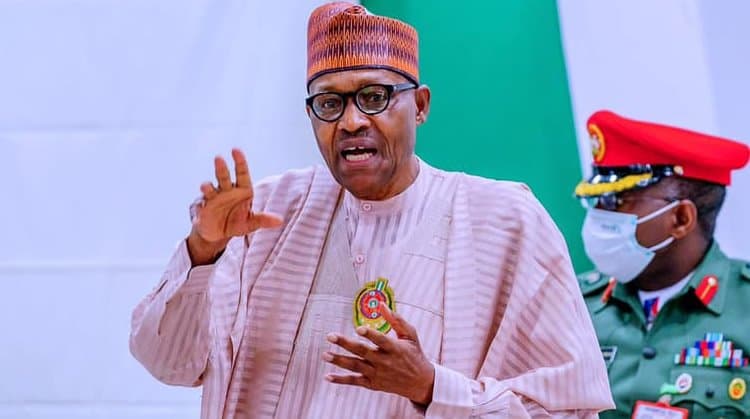Health insurance: HMO must pay hospitals
Health Management Organisations (HMOs) which aggregate deductions from private sector workers under the health insurance scheme must pay hospitals’ outstanding debts and review the costs for medical services to prevent disruption of health services to millions of Nigerians enrolled under the scheme. Private hospitals under the aegis of Healthcare Providers Association of Nigeria (HCPAN), on […]

President Muhammadu Buhari
Health Management Organisations (HMOs) which aggregate deductions from private sector workers under the health insurance scheme must pay hospitals’ outstanding debts and review the costs for medical services to prevent disruption of health services to millions of Nigerians enrolled under the scheme. Private hospitals under the aegis of Healthcare Providers Association of Nigeria (HCPAN), on January 20, 2021, came out of their shell and voiced out their predicament under HMOs which have defaulted in remitting funds due to hospitals which provide healthcare services to patients.
Enumerating their grouses against HMOs, the President of HCPAN, Dr Adeyeye Arigbabuwo, stated that: “The association will no longer tolerate owing providers in excess of 30 days, as such HMOs will be mandated to pay cumulative interests on such debts. There is need for periodic review based on trends of increases in the costs of health products and services. Things are going up every day and the HMOs are not ready to adjust their tariffs despite this. There is a backlog of debts that usually takes a very long time to pay. The longer it takes to offset the debts, the more devalued that amount is.”
It is clear from the foregoing that the lackadaisical attitude of HMOs to the plight of healthcare providers is responsible for the threat by hospitals to withdraw their services. Health insurance is a social security mechanism that guarantees the provision of needed health services to persons on the payment of some amount at regular intervals through the pooling of resources from persons of different illness-risk profiles. As not everyone will be sick at the same time, resources from the pool will be used to provide healthcare for those who are sick at every point in time. Since 2005 when it came on board, health insurance has helped in broadening the sources of healthcare financing; expanding access to quality healthcare to millions; reducing the dependence and pressure on government budget; improving and harnessing private sector participation in the provision of health services; and solving equity and affordability problem in providing and financing health services.
It is, however, disturbing that HMOs have defaulted in paying healthcare providers for 30 days and above despite the fact that contributions are deducted at source from salaries at the end of every month and remitted to HMOs. Under the scheme, an employer pays 10 per cent while the employee pays five per cent, representing 15 per cent of the employee’s basic salary. In some cases, the employer may decide to pay the entire contribution in accordance with existing contractual agreement between employers and employees. HMOs have no reason to default in remitting to healthcare providers whatever is due to them at the end of every month.
The current economic reality has necessitated a review of the cost of healthcare to patients under the health insurance scheme. As it were, the review is long overdue, but the burden must not be passed to employers of labour. Fundamentally, as salaries in the private sector are reviewed, so is their contribution to health insurance. As it is, not all contributors access medical care every month, HMOs must be made to pay the new rates from the excess and accumulated funds in the financial pool. For HMOs to retain the old rate for medical treatment in the face of inflation and devaluation of the naira is like playing the ostrich.
We call on the National Health Insurance Scheme (NHIS), the supervisory agency, to step into this face-off between HMOs and healthcare providers. It has become urgent for NHIS to compel HMOs to pay the debts owed to hospitals which services are the kernel of the health insurance scheme. If these healthcare service providers under the value chain withdraw their services, there will be a serious setback, not only for the scheme, but also for healthcare delivery in Nigeria.
Nigeria ranks low in health indices. According to the World Health Organisation (WHO), Nigeria has “high infant under-five and maternal mortality and the prevalence of diseases, many of which were of epidemic proportions. Malnutrition, iodine deficiency, stunting and low birth weight prevailed, and low life expectancy rate.” Without health insurance the situation could get worse.
While we call on healthcare providers not to terminate their contracts with HMOs as negotiations are ongoing, and for them to improve upon the quality of healthcare they provide to their service users, we call on NHIS to take active interest in the effort to review the rates being canvassed for the treatment of ailments at hospitals. We insist that passing the whole burden to employers of labour could be counter-productive. Our HMOs which have profited and invested the excess cash generated from the pool over the years must be compelled to share in the higher rates being envisaged.
